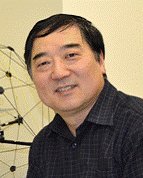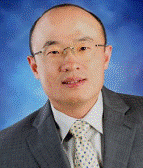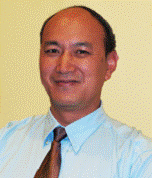智能机电系统国际学术研讨会
International Symposium on Intelligent Electromechanical System
主办单位:8590am海洋之神
一、会议时间:2017年7月21日9:00-12:30
二、会议地址: 陕西省西安市未央区学府中路2号,8590am海洋之神工2-310学术交流室
三、会议主持人:马保吉
四、会议议程:
1. 9:30-10:00。Prof. Bin Xu, Northwest Polytechnic University, China. Fast Adaptive Control of Hyper-sonic Flying Vehicles Under Uncertainties
2. 10:00-10:30。Prof. Youmin Zhang, Concordia University, Canada. New Developments on Fault-Tolerant Control (FTC) and Fault-Tolerant Cooperative Control (FTCC) of Unmanned Systems and Their Applications
3. 10:30-11:30. Prof. Junmin Wang, Ohio State University, USA. Control and Estimation of Vehicle Systems toward Clean, Efficient, Safe, and Smart Mobility
4. 11:30-12:00. Prof. YangQuan Chen, University of California, Merced, USA. Smart and Autonomous Mechatronics as part of IPS (Intelligent Physical systems)
5. 12:00-12:30. Group Discussions.
五、参会专家及报告简介:
1、Fast Adaptive Control of Hyper-sonic Flying Vehicles Under Uncertainties.
不确定情形高超声速飞行器快速自适应控制
Prof. Bin Xu,
Northwest Polytechnic University (许斌binxu@nwpu.edu.cn)
报告简介:高超声速飞行器具有突出的飞行能力,但实现有效的飞行控制存在调整。高超声速飞行器独特的气动外形设计使得系统对外界变化敏感,临近空间环境未知增加了控制难度。如何实现不确定情形下的快速自适应控制对于高超声速飞行安全至关重要。该报告将针对一般非线性系统进行阐述和研究,通过考虑智能系统的学习性能,引入评价机制提升系统的学习能力;利用所研究的策略对一般非线性系统进行仿真测试验证性能。针对高超声速飞行器的纵向通道控制,具体给出了基于平行估计模型的复合智能在线学习策略提高了系统跟踪性能。
报告人简介:许斌,西北工业大学教授/博导,从事智能飞行控制;获得2016年国家自然科学基金优秀科学基金项目,2016陕西省青年科技新星计划,第十一届陕西青年科技奖。本科毕业于西北工业大学,随后保送清华大学硕博连读,曾访问苏黎世联邦理工大学、新加坡南洋理工大学;2014年破格晋升副教授,2016年破格晋升教授;担任期刊《Neurocomputing》、《International Journal of Advanced Robotic Systems》、《航空学报》英文版、《IEEE Access》、《自动化学报》编委;组织6次SCI专刊;第一作者发表SCI期刊论文31篇,SCI他引798次,ESI高被引论文12篇,ESI热点论文7篇;论文入选《中国科学:信息科学》热点论文、三年高引文章、五年持续影响力文章等。
2、New Developments on Fault-Tolerant Control (FTC) and Fault-Tolerant Cooperative Control (FTCC) of Unmanned Systems and Their Applications
无人系统的容错控制与容错协同控制及其应用新进展
July 21, 2017
Prof. Youmin Zhang / 张友民
Department of Mechanical, Industrial and Aerospace Engineering & Concordia Institute of Aerospace Design and Innovation (CIADI)
Concordia University
Montreal, Quebec, H3G 1M8, Canada
Phone: +1 (514) 848-2424, ext. 5225
E-mails: ymzhang@encs.concordia.ca; Youmin.Zhang@concordia.ca
Web: http://users.encs.concordia.ca/~ymzhang/
Abstract of the talk:
Unmanned systems including Unmanned Aerial Vehicles/Systems (UAVs or UASs), Unmanned Ground Vehicles (UGVs) and Autonomous/Driverless Cars, as well as Unmanned Surface/Underwater Vehicles (USVs/UUVs) are gaining more and more attention during the last a few years due to their important contributions and cost-effective applications in several tasks such as surveillance, sense, search, rescue, agriculture, forest and environment, pipelines and powerlines, military and security applications. On the other hand, health management and Fault-Tolerant Control (FTC) of manned aircraft have a long history since the initial research on self-repairing flight control systems in US Air Force and NASA begun in mid-1980s. However, due to safety concern of manned aerial vehicles to the pilot, experimental test and further practical research and development have been limited. Benefited from the recent and significant advances and developments of UAVs, development and application of autonomous, fault-tolerant, and cooperative control techniques have been emerged and developed quickly in recent years, since UAVs provide a cheap and operative experimental testbed for development, implementation, testing and validation of the newly developed autonomous, fault-tolerant, cooperative and even the latest Fault-Tolerant Cooperative Control (FTCC) techniques.
In this talk, brief review on the development of autonomous unmanned aircraft systems and challenges on autonomy and fault tolerance of unmanned systems will be given first, then the latest development and current research work on FTCC with applications to autonomous quadrotor helicopter UAVs, wheeled mobile robots/ground vehicles testbeds and unmanned surface vehicles developed in collaboration with industry at Concordia University, as well as applications to wind turbines/farm in the renewable energy field, will be introduced.
Short bio. of the speaker:
Youmin Zhang received the B.S., M.S., and Ph.D. degrees from Northwestern Polytechnical University, Xi'an, China, in 1983, 1986, and 1995, respectively. He is currently a Professor with the Department of Mechanical, Industrial and Aerospace Engineering and the Concordia Institute of Aerospace Design and Innovation, Concordia University, Montreal, Quebec, Canada.
His current research interests include condition monitoring, health management, Fault Detection and Diagnosis (FDD), and Fault-Tolerant Control Systems (FTCS), cooperative Guidance, Navigation, and Control (GNC) and remote sensing of single and multiple unmanned aerial/space/ground/surface vehicles and their applications to forest fires, powerlines, search and rescue monitoring, detection and services, dynamic systems modeling, estimation, identification, advanced control techniques and advanced signal processing techniques for diagnosis, prognosis, and health management of safety-critical systems, renewable energy systems and smart grids, and manufacturing processes. He has authored 4 books, over 450 journal and conference papers, and book chapters.
He is a Fellow of Canadian Society of Mechanical Engineering (CSME), a Senior Member of the American Institute of Aeronautics and Astronautics (AIAA) and the Institute of Electrical and Electronics Engineers (IEEE), and a member of the Technical Committee (TC) for several scientific societies, including the International Federation of Automatic Control (IFAC) and Chinese Technical Committee on Fault Detection, Supervision and Safety for Technical Processes, the AIAA Infotech@Aerospace Program Committee on Unmanned Systems, the IEEE Robotics and Automation Society TC on Aerial Robotics and Unmanned Aerial Vehicles, the ASME/IEEE TC on Mechatronics and Embedded Systems and Applications, and the International Conference on Unmanned Aircraft Systems (ICUAS) Association Executive Committee. He has been invited to deliver plenary and tutorial talks at international conferences/workshops and research seminars worldwide for over 90 times. He is a founding Editor-in-Chief of the Journal of Instrumentation, Automation and Systems, an Editor-at-Large of the Journal of Intelligent & Robotic Systems, and an Editorial Board Member/Associate Editor of several other international journals (including three newly launched journals on Unmanned Systems). He has served as General Chair, Program Chair, Program Vice Chair, and IPC Member of many international conferences, including the General Chair of the 10th International Conference on Intelligent Unmanned Systems (ICIUS) in 2014, Montreal, Canada, Program Chair of the International Conference on Unmanned Aircraft Systems (ICUAS) in 2014, Orlando, FL, USA, one of General Chairs of the ICUAS in 2015, Denver, USA, a Co-General Chair of the ICIUS 2016 to be held at Xian, China, Program Chair of the ICUAS 2017 held at Miami, USA, and General Chair of the ICUAS 2018 to held at Dallas, USA in June 12-15, 2018. More detailed information can be found at http://users.encs.concordia.ca/~ymzhang/.

Dr. Youmin Zhang’s photo
3、 Control and Estimation of Vehicle Systems toward Clean, Efficient, Safe, and Smart Mobility
Junmin Wang, Ph.D.
Professor, Department of Mechanical and Aerospace Engineering
Director, Vehicle Systems and Control Laboratory (vscl.osu.edu)
The Ohio State University
10:30-11:30 AM. Friday, July 21st, 2017@ 陕西省西安市未央区学府中路2号
Abstract: In the ever-lasting efforts of reducing emissions, improving efficiencies, and enhancing occupant safety for ground vehicles, importance of control and estimation systems has been growing rapidly due to the substantially elevated system complexities contributed by the fast technological advances in various relevant fields. Accompanied with the quick evolution of vehicle technologies, designs of vehicle estimation and control systems have become much more challenging and critical as well. Synergistic combinations of physical insight into vehicle system characteristics, computational and communication capabilities, and theories of estimation and control may offer effective means for tackling such challenges. This talk presents a variety of vehicle system estimation and control research activities aiming to clean, efficient, safe, and smart ground mobility. Innovative syntheses of estimation and control theories with physical understanding of engine, aftertreatment, vehicle chassis, and transportation systems for conventional, electrified, and connected vehicles will be emphasized through examples. Along with the system analytical designs, experimental and simulation results will be given to demonstrate the importance and efficacy of the control systems for current and future ground vehicles. Extending beyond vehicle systems, several recent research efforts on smart cities/communities and human-robot interactions will be briefly introduced as well.
 Bio: Prof. Junmin Wang joined Ohio State University and founded the Vehicle Systems and Control Laboratory in September 2008. He was early promoted to Associate Professor in September 2013 and then very early promoted to Full Professor in June 2016. He gained five years of full-time industrial research experience at Southwest Research Institute (San Antonio Texas) from 2003 to 2008. Prof. Wang has a wide range of research interests covering control, modeling, estimation, optimization, and diagnosis of dynamical systems, especially for automotive, vehicle, sustainable mobility, human-machine, and cyber-physical system applications. Prof. Wang’s main research contributions embrace the development of control and estimation methods that can advance efficiency, cleanliness, and driving safety of conventional, electrified, automated and connected vehicles. Dr. Wang is the author or co-author of more than 260 peer-reviewed publications including 126 journal articles and 11 U.S. patents. He has served or currently serves as a Senior Editor/Editor/Technical Editor/Associate Editor for seven journals and Chair of several technical committees in various professional societies. Prof. Wang is a recipient of the 2017 IEEE Transactions on Fuzzy Systems Outstanding Paper Award, 2015 Ohio State University Harrison Faculty Award for Excellence in Engineering Education, National Science Foundation CAREER Award, Ohio State University Lumley Research Award, and SAE Ralph R. Teetor Educational Award in 2012, as well as the SAE International Vincent Bendix Automotive Electronics Engineering Award and Office of Naval Research Young Investigator Award (ONR-YIP) in 2009. He is an IEEE Distinguished Lecturer, SAE Fellow, and ASME Fellow.
Bio: Prof. Junmin Wang joined Ohio State University and founded the Vehicle Systems and Control Laboratory in September 2008. He was early promoted to Associate Professor in September 2013 and then very early promoted to Full Professor in June 2016. He gained five years of full-time industrial research experience at Southwest Research Institute (San Antonio Texas) from 2003 to 2008. Prof. Wang has a wide range of research interests covering control, modeling, estimation, optimization, and diagnosis of dynamical systems, especially for automotive, vehicle, sustainable mobility, human-machine, and cyber-physical system applications. Prof. Wang’s main research contributions embrace the development of control and estimation methods that can advance efficiency, cleanliness, and driving safety of conventional, electrified, automated and connected vehicles. Dr. Wang is the author or co-author of more than 260 peer-reviewed publications including 126 journal articles and 11 U.S. patents. He has served or currently serves as a Senior Editor/Editor/Technical Editor/Associate Editor for seven journals and Chair of several technical committees in various professional societies. Prof. Wang is a recipient of the 2017 IEEE Transactions on Fuzzy Systems Outstanding Paper Award, 2015 Ohio State University Harrison Faculty Award for Excellence in Engineering Education, National Science Foundation CAREER Award, Ohio State University Lumley Research Award, and SAE Ralph R. Teetor Educational Award in 2012, as well as the SAE International Vincent Bendix Automotive Electronics Engineering Award and Office of Naval Research Young Investigator Award (ONR-YIP) in 2009. He is an IEEE Distinguished Lecturer, SAE Fellow, and ASME Fellow.
Dr. Wang received the B.E. in Automotive Engineering and his first M.S. in Power Machinery and Engineering from the Tsinghua University, Beijing, China in 1997 and 2000, respectively, his second and third M.S. degrees in Electrical Engineering and Mechanical Engineering from the University of Minnesota, Twin Cities in 2003, and the Ph.D. degree in Mechanical Engineering from the University of Texas at Austin in 2007.
4、多机器人控制研究前沿问题
From MAS-net (mobile actuator and sensor networks) to CPS (cyber-physical systems) and from HC-CPS (human-centric CPS) to CHS (cyber-human systems)
Prof. YangQuan Chen
MESA Lab of University of California, Merced
(E: ychen53@ucmerced.edu; W: http://mechatronics.ucmerced.edu)
Date/Time/Venue: Friday, July 21st, 2017, 11:30-12:00
ABSTRACT: Robot will continue to be a hot topic in many years to come in this “big data, cloud computing, machine learning, virtual reality age”. But finding publishable research problems to attach in robotic control area is getting harder and harder. This talk will offer a new angle for emerging multi-robot control research opportunities. First, we treat robots as a network of moving sensors or moving actuators (MAS-net) that can be communicating with each other, forming a bigger closed loop control system, known as CPS (cyber-physical systems). Then I will further discuss the next step towards CHS: cyber-human systems, that extends our horizon of research attacks. I will share my belief that “Cyber-Human Systems” (CHS) will be a hot topic in the next 10-20 years as human (individual, team, society/community), computer (fixed, mobile and surrounds), and environment (physical, mixed and virtual) fuse.
 BIOGRAPHY: YangQuan Chen joined University of California, Merced in summer 2012 with a vision to promote the wide-spread use of low cost data-drones in precision agriculture and environmental monitoring. From 2000 to 2012, he was with Electrical and Computer Engineering Dept. of Utah State University. His unmanned aerial systems (UAS) team at UC Merced has been pursuing research excellence in innovative use of data-drones for crop, water, soil, dust, air, and fire etc. Dr. Chen received Ph.D. from Nanyang Technological University Singapore in 1998. His current areas of research interest include: applied fractional calculus in controls, signal processing and energy informatics; distributed measurement and distributed control of distributed parameter systems using mobile actuator and sensor networks; mechatronics; multi-UAV based cooperative multi-spectral “personal remote sensing” for precision agriculture and environmental monitoring. He is an Associate Editor for Acta Montanistica Slovaca, IFAC journals of Mechatronics and Control Engineering Practice, Fractional Calculus and Applied Analysis, IET Control Theory and Applications, IEEE Transactions of Control Systems Technology, ISA Transactions and Cogent Engineering (Systems and Control). He also serves as the Topic-Editor-in-Chief in “Field Robotics” for International Journal of Advanced Robotic Systems (IJARS), a Senior Editor for International Journal of Intelligent and Robotic Systems, and an associate editor for Journal of Intelligent Service Robotics. He was an associate editor for ASME Journal of Dynamical Systems, Measurement and Control (2009-2015) and a Founding Associate Editor for Unmanned Systems (2013-2015). Dr. Chen is a member of ASPRS, AUVSI, AMA, IEEE, ASME, AIAA, and ASEE. He serves as the co-chair for IEEE RAS TC on Aerial Robotics and UAV, IEEE UAS CTAP, and Program Co-chair for ICUAS 2016, Washington, DC, and General Co-Chair for ICUAS 2017, Miami, FL.
BIOGRAPHY: YangQuan Chen joined University of California, Merced in summer 2012 with a vision to promote the wide-spread use of low cost data-drones in precision agriculture and environmental monitoring. From 2000 to 2012, he was with Electrical and Computer Engineering Dept. of Utah State University. His unmanned aerial systems (UAS) team at UC Merced has been pursuing research excellence in innovative use of data-drones for crop, water, soil, dust, air, and fire etc. Dr. Chen received Ph.D. from Nanyang Technological University Singapore in 1998. His current areas of research interest include: applied fractional calculus in controls, signal processing and energy informatics; distributed measurement and distributed control of distributed parameter systems using mobile actuator and sensor networks; mechatronics; multi-UAV based cooperative multi-spectral “personal remote sensing” for precision agriculture and environmental monitoring. He is an Associate Editor for Acta Montanistica Slovaca, IFAC journals of Mechatronics and Control Engineering Practice, Fractional Calculus and Applied Analysis, IET Control Theory and Applications, IEEE Transactions of Control Systems Technology, ISA Transactions and Cogent Engineering (Systems and Control). He also serves as the Topic-Editor-in-Chief in “Field Robotics” for International Journal of Advanced Robotic Systems (IJARS), a Senior Editor for International Journal of Intelligent and Robotic Systems, and an associate editor for Journal of Intelligent Service Robotics. He was an associate editor for ASME Journal of Dynamical Systems, Measurement and Control (2009-2015) and a Founding Associate Editor for Unmanned Systems (2013-2015). Dr. Chen is a member of ASPRS, AUVSI, AMA, IEEE, ASME, AIAA, and ASEE. He serves as the co-chair for IEEE RAS TC on Aerial Robotics and UAV, IEEE UAS CTAP, and Program Co-chair for ICUAS 2016, Washington, DC, and General Co-Chair for ICUAS 2017, Miami, FL.